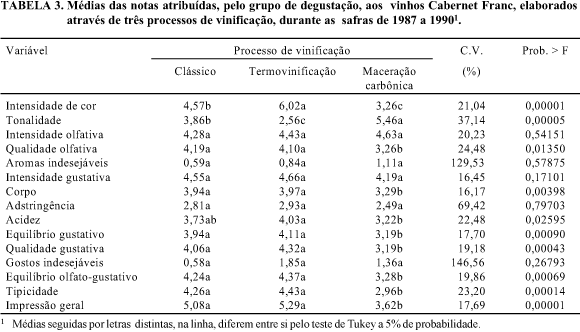The effects of three processes of vinification on chemical composition and quality of Cabernet Franc wine were evaluated from the 1987 to the 1990 vintages. The vinifications were made in an industrial scale by the following processes: conventional vinification, thermovinification and carbonic maceration. The analyses performed were alcohol, total acidity, reducing sugar, ash, dry extract, phenolic and volatile compounds and mineral elements. The quality was evaluated by sensory analysis. Data were submitted to principal component analysis (PCA) and to analysis of variance, where the three first axes explained 68.2% of the total variation. The PCA permitted to separate the wines of carbonic maceration from the other two vinification processes. The variables presenting important variation effect were the higher alcohols, cations and phenolic compounds. The sensory evaluation showed that carbonic maceration originated lighter wines with lower color intensity; the thermovinification and the conventional vinification originated wines with better body, better quality and gustative balance and with higher varietal characteristic.
enology; carbonic maceration; thermovinification





